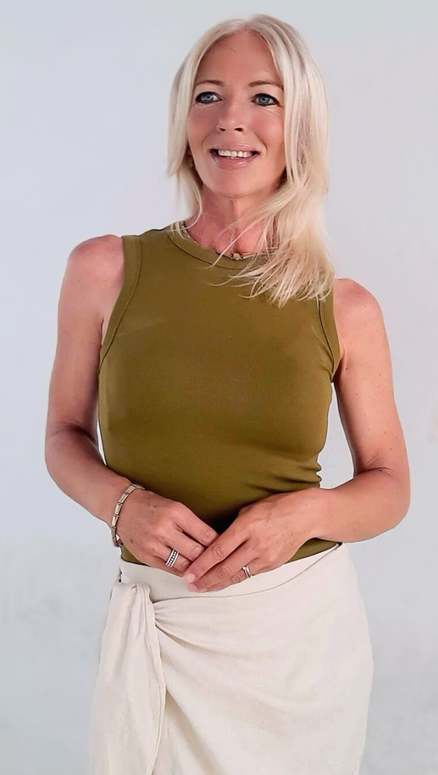Am I Codependent?
What your adaptive behaviour really reveals about old wounds, not about who you truly are
For a long time, I thought this was just who I was. Always giving. Always caring. Always feeling on behalf of others.
Until I realised this wasn’t love at all. It was survival.
And what I had called my personality, was in fact a well-rehearsed defence mechanism.
Codependency isn’t an identity. It’s a survival strategy that once kept you safe, but now keeps you stuck in a role that no longer fits.
What I’m sharing here isn’t theory. It’s a mirror. For when you feel like you’ve lost touch with yourself along the way. So you can begin to gently return to who you really are, in your own time.
This blog is for anyone who resonates with the feeling of always giving, always carrying.
You’ll find familiar signs and deeper insights into self-abandonment and survival behaviour in relationships.
For a general overview of codependency, visit:

Codependency is so much more than being overly caring or struggling with boundaries
It’s a deeply wired survival strategy, rooted in your earliest years.
Codependency isn’t a personality trait. It’s a neurological and emotional coping mechanism developed in childhood. When emotional safety is absent and love must be earned through care, compliance or self-sacrifice, you learn that your worth depends on others.
What begins as a necessary survival tool slowly becomes a pattern that shapes every relationship – from romantic partnerships to friendships, family and even work.
Codependency is:
- Suppressing your own needs in order to maintain the connection.
- Always being attuned to the other person, while losing yourself more and more.
- Confusing love with saving, adapting and pleasing.
- Feeling completely responsible for the other person's emotions and well-being.
And the most deceptive part?
It feels completely normal. Because this is how you once learned to survive.
Do you recognise yourself?
-
You feel responsible for how others feel
-
You constantly adapt to avoid rejection
-
You know exactly what others need, but not what you feel
-
You often doubt yourself and seek validation outside yourself
-
You keep ending up in imbalanced or toxic relationships
-
You struggle to feel or set boundaries
How does codependency develop?
Codependency develops early in life:
-
If you grew up in an environment where love was conditional
-
If you were taught that taking care of others mattered more than being yourself
-
If your feelings were ignored, denied or belittled
-
If you felt responsible for your parents' moods
You learned: I have to adapt to earn love.
And that pattern still lives on inside you
Codependency isn’t just a mental habit – it’s wired into your nervous system and limbic brain:
-
Your nervous system associates safety with adapting
-
Your limbic system links love with survival
-
Your self-image is built around how well you take care of others
Even when you know something is unhealthy, letting go can feel like losing yourself.
Many people recognise their codependent patterns… but still feel stuck. Why?
Because your nervous system doesn’t recognise healthy love. It feels unfamiliar. Unsafe. Boring.
-
Your body craves intensity
-
You attract people who mirror your old emotional scripts
-
Your sense of worth is tied to how much you give
Why traditional therapy often falls short when it comes to codependency
Many therapies focus on setting boundaries, building self-esteem or letting go. But if your nervous system is still wired for adaptation, letting go can feel like a threat to your very survival.
True healing begins in the body.
-
By resetting the nervous system so safety comes from within
-
By reprogramming the limbic system so love no longer feels like survival
-
By retrieving the parts of you that were left behind in your search for love
Healing from codependency requires more than insight alone.
It calls for:
-
Awareness – recognising your patterns without judgement
-
Nervous system repair – teaching your body what true safety feels like
-
Limbic healing – so you can instinctively recognise healthy love and release old triggers
-
Retrieval of lost parts – because only when you reclaim yourself can you connect with others in a healthy way
-
Embodied boundaries – understanding that every no to others is a yes to yourself
-
Rebuilding your relationship with yourself – because if you’re not truly connected to you, you’ll keep searching for approval outside
Freedom isn’t just about walking away from toxic relationships
It’s about feeling yourself again. Knowing where you end and the other begins. Sensing your boundaries from within, without guilt. Realising that you no longer need to earn love, but can find the love within yourself.
This is what I will teach you in my 16-week programme.
-
Nervous system reset – learning how true safety feels in your body
-
Limbic system healing – breaking free from patterns that tie love to survival
-
Inner child and parts work – retrieving all the parts of you that were left behind
-
Restoring your relationship with yourself – because you are the foundation of everything
You don’t have to do this alone. I know this road from the inside. And I’d be honoured to walk it with you.
You are not your pattern. You are not your past. But you are someone who learned to protect yourself in a world that felt unsafe.
Perhaps you became so good at it that you forgot what it feels like to just be yourself.
Without pleasing others. Without adapting. Without fear of rejection.
But you can return. To your body. To your feelings. To your truth.
Do you feel it's the right time to let go of what no longer serves you?
Discover my 16-week programme for recovery from codependency. Or schedule a no-obligation consultation — tailored to your pace, your story.